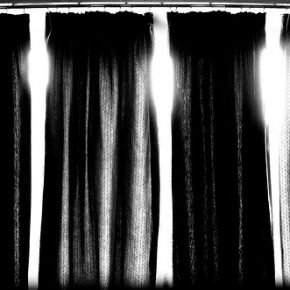Der dritte oder der vierte Mensch, by the German sociologist Alfred Weber, hardly qualifies as a classic of the literature. It was published in 1953 as the first phase of the Cold War was winding down and much of the value that it retains is due to the way that it reflects the mindset of a particular moment in history.
“Now, and for the foreseeable future,” Weber wrote, “the spiritual fate of [humanity], formerly so extravagant and diverse, is pressed into an all-encompassing alternative” between freedom and terror. And this would seem like a mere historical matter were it not the humanity faces a similar choice in the present moment.
Alfred Weber was the younger brother Max Weber, one of the central figures of the founding generation of German sociology. In his seminal but underappreciated text Max Webers Fragestellung. Studien zur Biographie des Werks (1987), Wilhelm Hennis argued, convincingly in my view, that the elder Weber’s intellectual project centered on the question of what sort of human being resulted from the conditions of modern society.
In The Protestant Ethic and the Spirit of Capitalism (1905), Weber argued that, prior to the rise of fully formed capitalism, the social and economic structure of the West resulted in well-rounded human beings capable of acting morally on the basis of their properly formed individualism. But the displacement of the diverse ethical commitments of such individualism by the calculating, profit-oriented rationality had put an end to that.
In point of fact, it is worth noting that the sort of individual which Weber made the normative basis of this critique bore a striking similarity the self-understanding of the leading figures of the National Liberal Party, whose Berlin contingent used to gather at Weber’s father’s house in the days of his youth. Still, Weber’s diagnosis of the human pathology of modernity struck a chord. His most compelling statement of the problem was rendered powerfully, if slightly inaccurately, by Talcott Parsons in his canonical 1958 translation.

The calling to rational concern for external goods had been viewed by the founders of ascetic Protestantism as “a light cloak which can be thrown aside at any moment” by those who understood that such worldly pursuits had to be viewed in the context of the search for eternal salvation. But the rise of acquisitive rationalism had changed this cloak to an “iron cage” (literally a “structure hard as steel”).
No one knows who will live in this cage in the future, or whether at the end of this tremendous development entirely new prophets will arise, or there will be a great rebirth of old ideas and ideals, or, if neither, mechanized petrification, embellished with a sort of convulsive self-importance. For the last stage of this cultural development, it might well and truly be said: ‘Specialists without spirit, sensualists without heart; this nullity imagines that it has attained a level of civilization never before achieved.’
Weber’s dire assessment had profound influences on the self-understanding of modernity in the middle and later 20th century. It would be extended and amplified in the work of the Frankfurt School, particularly in The Dialectic of Enlightenment. Horkheimer and Adorno’s text, written in the midst of the Second World War, spoke of the modern world in similarly apocalyptic terms: enlightenment was meant to free human beings from superstition and ignorance, but “the fully enlightened earth is refulgent in the sign of triumphant calamity.”
Alfred Weber shared his brother’s fascination with historical sociology. And he too partook of the same springs of cultural pessimism as had Horkheimer and Adorno, although he did not share their Hegelian-Marxist theoretical orientation. His liberalism was a throwback to that of his brother, to the capital L liberalism of Germany in the era of the Kaiserreich. For Weber, as for many intellectuals in Adenauer’s newly minted West German state, the decisive issues of the time were profoundly influenced by the Cold War. The civilizational conflict between the Soviet Union and the West (admittedly a problematic phrasing but one that conveys the common mode of thought at the time) suffused questions of rationality and human conduct with a pronounced geopolitical slant.
In Der dritte oder der vierte Mensch, Weber argued that there have been three ages of man. The first ran from prehistory to 1500, the second from then until around 1900. Human civilization in this period was powerfully shaped by, “the emergence of modern, empirical, incremental, systematically progressive science, which sparked the rapid and revolutionary progress of modern technology since 1760.”

This configuration in its political but also (more essentially) its economic and technological dimensions resulted in human beings committed to ideas of freedom and human dignity. This variety of humanity was now, in turn, threatened by a fourth variety, to which totalitarianism (both of the left and the right) had given rise. The question facing humanity in that moment was: “should the human type that has integrated freedom and human dignity – the final form of the ‘third man’ – still be the leading one? Or should its old historical torso become a vessel for the unfree, terrorized existence of another sort of human marked by the social fanaticism of the purported religion of social equality?”
The question facing humanity in that moment was: “should the human type that has integrated freedom and human dignity – the final form of the ‘third man’ – still be the leading one? Or should its old historical torso become a vessel for the unfree, terrorized existence of another sort of human marked by the social fanaticism of the purported religion of social equality?”
Let us put aside for the moment the question of whether we actually agree with the minutiae of Weber’s typology. Certainly, there is much that is problematic there. Still, today it is arguable, on the basis of the social, technological, and political aspects of our society that we are standing for the choice of a fifth and a sixth type of human being: either networked or post-fact. This distinction does not map perfectly onto Weber’s typology.
For Weber, the fourth (totalitarian) human was a deficient version of the third, one that retained the form of humanity without its civilized rationality. The fifth (networked) and sixth (post-factual) humans relate in a slightly different way. The fifth (like the third) is an outgrowth of a period of technical and cultural transformation. The sixth (unlike the fourth) results from an atavistic desire to return to a previous mode of social and technological organization.
The networked version of human being can be read out of the pages of such disparate thinkers as Jeremy Rifkin, Mackenzie Wark and Paul Mason, but also in the work of a host of technophile writers. The networked version of humanity is comfortable in the varied environments of social media, pursues factual content across a range of platforms and sources, and lives and economic life increasingly centered on objects whose marginal cost asymptotically approaches zero. They tend to, but need not fully, approximate the hackers of Wark’s A Hacker Manifesto, using codes to break down the structures of the world and to bring new content into being. They are reflexively materialist, but not necessarily either materialistic or its opposite. They live in struggle with the vectoral class over the freedom and dissemination of information.

The post-factual human lives in the digital world but is not of it. White men and their spouses predominate, but that is a historical contingency rather than a matter of essence. Donald Trump has achieved a great deal of political success by harnessing their rage, but also their willingness to allow truth to be a function of feelings rather than the other way around.
The highly variegated world of information and related technologies is for this mode of humanity a vertigo-inducing manifold chasing them back in the direction of univocal sources of information that comport with the way that wish the world to be (and seem to think it was at some point). But it should be noted that Trump’s success is really only a symptom of the creation of a post-factual culture. It was already well and truly formed in 2004 when Karl Rove spoke dismissively to the journalist Ron Suskind about the “reality-based community.” Confronted by a world of facts which increasingly diverge from the Ward Cleaver imaginary, their collective response is: so much the worse for the facts.
The clock of environmental degradation and economic collapse is ticking. Human civilization (and it currently hardly merits the term) stands on the edge of a knife. There are some important questions to be asked about whether capitalism in its current form can persist, or whether some new mode of organization will supersede it. But the more immediate questions facing us are who will make the decisions and on what basis.
Given the current political situation, it looks very much as if the denizens of the reality-based community are in retreat. And this is the sort of thing that should worry us. A world shaped by heightened national and ethnic chauvinisms is unlikely to produce the sort of human that can effectively undertake the tasks necessary for survival. The pressing nature of the questions will only increase as the planet warms.
Photographs courtesy of Joel Schalit.





